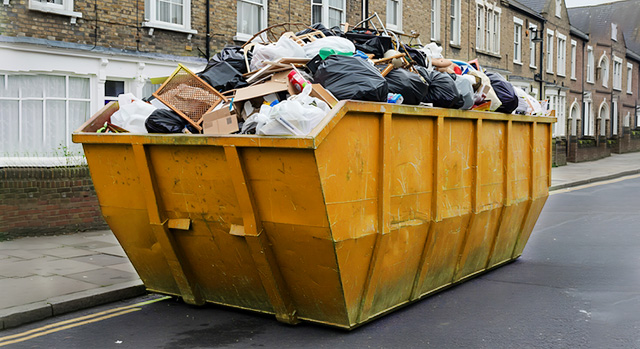
Canberra is home to an exciting range of events every year. From large-scale music festivals and food markets to local school fetes and sports tournaments, the city knows how to bring people together. While these events create vibrant community spirit and economic buzz, they also generate a surprising amount of waste. Without a clear plan, this waste can pile up fast, causing stress for organisers and leaving a lasting environmental impact.
This is where smart waste management Canberra comes in. Whether you are hosting a small street fair or a major public gathering, having the right bin strategy can make all the difference. It helps keep your event site clean, protects the environment, and ensures you meet local waste regulations without trouble.
In this article, we explore why a waste management plan matters for Canberra events, what smart skip bins Canberra looks like, and how you can make your next event both successful and sustainable.
Why Waste Management Should Be on Every Event Checklist
Many organisers think about permits, vendors, and security long before they ever think about rubbish. But waste is one of the most visible by-products of any public gathering. When bins are too few, poorly placed, or overflowing, it sends the wrong message to attendees and creates extra work after the event ends.
Good waste planning starts early. It can reduce clean-up costs, improve recycling rates, and avoid complaints from neighbours or the council. More importantly, it helps keep public spaces pleasant and accessible.
With waste management Canberra services becoming more advanced and flexible, it is easier than ever to build a rubbish strategy into your event planning from the start.
How Much Waste Does an Event Produce?
According to data from similar cities, a typical community event of around 5,000 people can generate between 300 and 600 kilograms of waste. Bigger festivals with food trucks and alcohol vendors can produce several tonnes across a weekend. Unfortunately, much of that waste often ends up in landfill when it could have been sorted, recycled, or composted.
By partnering with experienced Canberra rubbish removal services, organisers can set up clear waste stations, place bins strategically, and manage waste flow during and after the event. With skip bins for events Canberra, it becomes easy to handle general rubbish, recyclables, and even food scraps separately.
Types of Waste at Canberra Events
Different types of events will generate different types of waste. Understanding what you are likely to face helps you plan more effectively.
1. General Waste
Plastic wrappers, napkins, broken decorations, and packaging materials are the most common waste items. These need to be collected in standard general waste bins or skips.
2. Recyclables
Cans, bottles, cardboard, and clean plastic containers can often be recycled. Canberra waste providers can help set up labelled recycling bins to make separation simple.
3. Food Waste
At food festivals or markets, leftover food and compostable items make up a large portion of total rubbish. Special green waste bins can be used to keep this separate.
4. Bulk Waste
Events that involve construction or staging may produce wood, metal, and bulky materials. These require large skip bins or specialty bins.
Smart Bin Hire: What Does It Mean?
Smart bin hire in Canberra does not just mean booking any bin and hoping for the best. It is about choosing the right bins, placing them in the right locations, and making sure people know how to use them. Here are a few elements of a smart event waste solution Canberra organisers can use.
Right Bin Size
From small wheelie bins to large event skips, Canberra services offer a range of sizes. An experienced provider will help you estimate how many bins you need based on crowd size, event duration, and venue layout.
Clear Signage
Confusion over what goes where is a common issue. Smart bin setups include clear signs in multiple languages or with simple images so guests can sort waste correctly.
Waste Station Planning
Rather than scattering bins randomly, experienced waste teams set up “waste stations” where general, recycling, and organic bins sit together. This improves sorting rates and reduces contamination.
Scheduled Bin Collection
For multi-day events or large festivals, bins may need to be emptied more than once a day. Organising scheduled pick-ups through your Canberra waste provider prevents overflow.
Local Waste Laws and Event Rules in Canberra
The ACT Government expects event organisers to manage waste responsibly. Depending on the size and location of your event, you may need to apply for permits and include a waste management plan in your application.
Some key guidelines include:
- Providing enough bins to cover expected attendance
- Separating waste into general, recycling, and food categories
- Ensuring all bins are removed promptly after the event
- Preventing litter or illegal dumping
Failure to follow these rules can lead to fines or restrictions on future event permits. That is why working with a local Canberra waste management expert is highly recommended.
Eco-Friendly Events Are the Future
More Canberrans are starting to care about the environmental footprint of public events. From eco-markets to sustainable food festivals, there is growing demand for cleaner, greener practices.
By offering recycling options, composting food waste, and reducing single-use plastics, event organisers can show their commitment to sustainability. Some even go further by encouraging attendees to bring reusable water bottles or containers.
Having a proper waste management strategy not only helps the environment, but it also boosts your event’s public image. Sponsors and councils are more likely to support events that follow green principles.
Read Also : How to Choose Skip Bin Hire for Rubbish Removal Canberra
Tips for Organising Waste at Your Next Event
- Talk to a Local Waste Provider Early
Reach out to a Canberra rubbish removal service well before the event. They can advise on permits, bin types, and expected volumes. - Visit the Site
Walk through your venue and note where people will gather, eat, and exit. These are key spots for bin placement. - Plan for Volunteers or Staff
Assign people to monitor bins during the event. They can help guests sort their rubbish or report when bins are full. - Track Waste Results
After the event, ask your provider how much waste was collected and how much was recycled. This can help improve future planning. - Promote Your Plan
Tell attendees about your waste setup before and during the event. Use signs, social media, or announcements to encourage participation.
Choosing the Right Waste Partner
Not all waste companies are the same. When comparing providers for your next Canberra event, consider the following:
- Local knowledge of ACT waste laws
- Ability to offer a range of bin types and sizes
- Flexible delivery and pick-up schedules
- Support for recycling and organic separation
- Clear pricing with no hidden fees
Real-Life Example: A Festival Done Right
Last summer, a weekend music festival at Commonwealth Park attracted over 15,000 visitors. With food stalls, beer gardens, and multiple stages, it was a large operation.
The organisers worked with a Canberra skip hire company to place more than 40 bins across the venue. These included 10 general skip bins, 20 recycling bins, and 10 food waste collection points. Volunteers helped guide guests at waste stations and kept bins from overflowing.
At the end of the event, more than 60 percent of waste was diverted from landfill. Council inspectors praised the clean-up effort, and the organisers saved money by reducing contamination fees.
It was a clear sign that smart bin planning pays off.
Conclusion: Clean Events Start With Smart Waste Planning
Planning an event in Canberra? Don’t wait until the last minute to think about waste. Whether it is a backyard fundraiser, community fair, or a major city-wide event, having a solid waste strategy is essential.
From choosing the right skip bins to following ACT regulations, every detail counts. With the help of local waste management Canberra professionals, you can run a clean, successful, and sustainable event.
So before the music starts or the first stall opens, take the time to sort out your rubbish plan. Your guests, your venue, and the environment will thank you for it.

